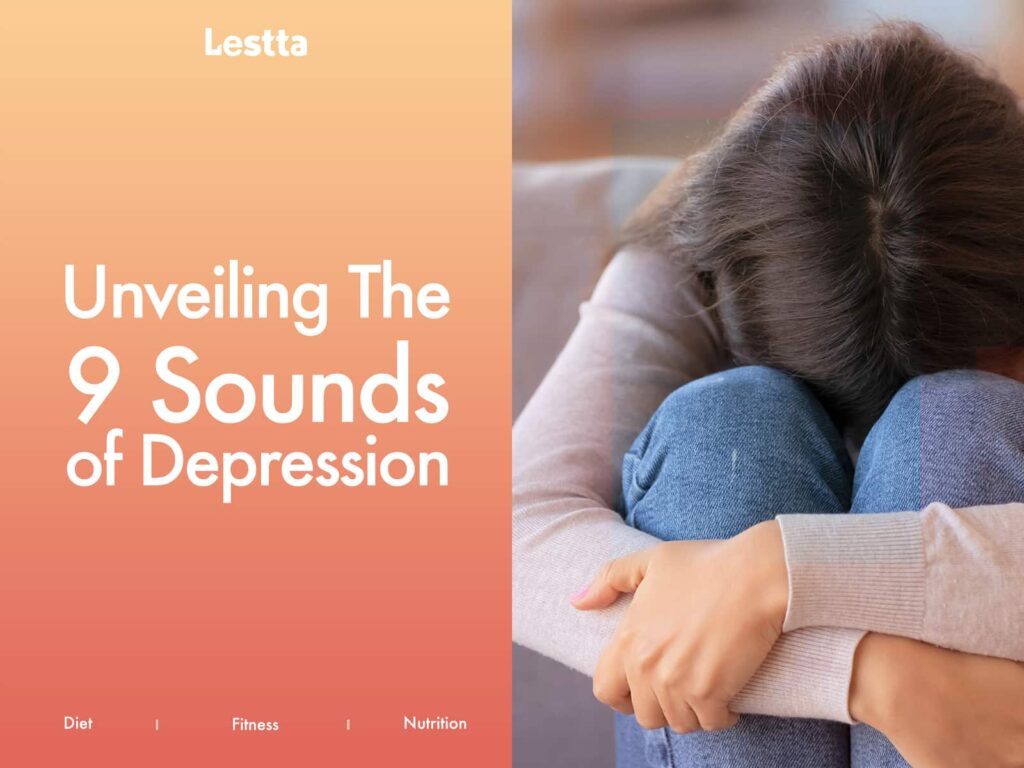
Depression is a complex and often misunderstood mental health condition that affects millions of people worldwide. In fact, depression can be likened to a symphony of sounds, each one echoing a different facet of this challenging condition. In this article, we delve into the “sounds of depression” to shed light on its multifaceted nature.
1. The Deafening Silence:
One of the most profound sounds of depression is the deafening silence that engulfs an individual’s inner world. It’s a silence that suffocates, disconnecting them from their own emotions, and leaving them feeling empty and numb. This silence is often accompanied by a loss of interest in activities that once brought joy, leading to a sense of isolation.
2. The Whispers of Self-Doubt:
Depression amplifies the internal whispers of self-doubt and self-criticism. These relentless whispers erode self-esteem and create a distorted perception of oneself. They convince individuals that they are unworthy, incapable, or undeserving of happiness, exacerbating the emotional burden they carry.
3. The Echoes of Hopelessness:
A hallmark of depression is the overwhelming sense of hopelessness that reverberates within. The echoes of hopelessness can drown out any glimmer of optimism, making it challenging for individuals to envision a future free from the grip of depression. These echoes magnify the weight of despair and can make even the simplest tasks seem insurmountable.
4. The Crescendo of Guilt:
Depression often brings forth a crescendo of guilt, amplifying past regrets and self-blame. It convinces individuals that they are a burden to those around them, intensifying their feelings of worthlessness. The weight of this guilt can be paralyzing, hindering their ability to seek help and perpetuating a vicious cycle.
5. The Melancholic Lament:
In the depths of depression, one can hear the melancholic lament, a sound that encapsulates the profound sadness experienced. This lament is a haunting melody that accompanies feelings of grief and loss, as individuals mourn the vitality and joy they once possessed. It echoes the pain that permeates every aspect of their existence.
6. The Silence of Expression:
Depression can silence an individual’s ability to express themselves authentically. The voice becomes stifled, unable to convey their emotions and struggles to others effectively. This silence of expression further isolates individuals, hindering their ability to seek support and understanding from their loved ones.
7. The Resonance of Anxiety:
Anxiety often intertwines with depression, creating a dissonant resonance. The sound of anxiety manifests as constant worry, restlessness, and an inability to find peace. This anxious resonance intensifies the sounds of depression, heightening the sense of unease and exacerbating the overall distress.
8. The Discordant Thoughts:
Depression fills the mind with discordant thoughts, a disarray of negative and self-defeating patterns. These thoughts play on a loop, echoing doubt, despair, and worthlessness. The discordance makes it difficult to find clarity and can perpetuate the cycle of depression, trapping individuals in a mental prison.
9. The Echoes of Silence Broken:
While depression brings forth many oppressive sounds, there is hope in the echoes of silence broken. These echoes represent the power of seeking help, opening up about one’s struggles, and embracing support. They remind us that recovery is possible.
Conclusion
By delving into the various sounds, from the silent cries to the echoing whispers of despair, we have gained a deeper understanding of the experiences and emotions associated with depression. It is our collective responsibility to listen, validate, and extend a helping hand to individuals navigating the labyrinth of depression. Together, we can break the silence, amplify their voices, and create a world where understanding and healing prevail.









